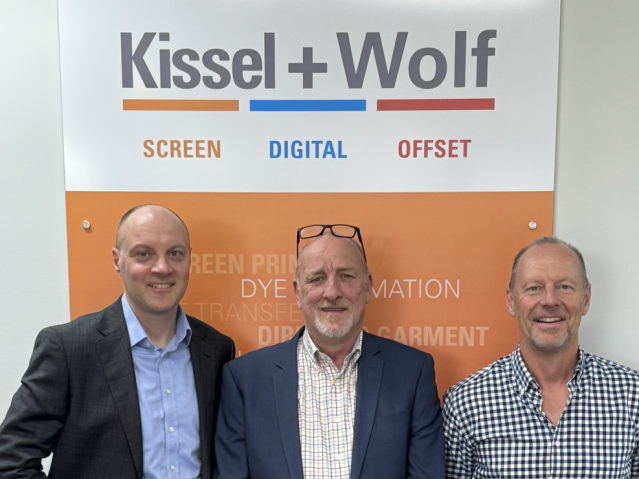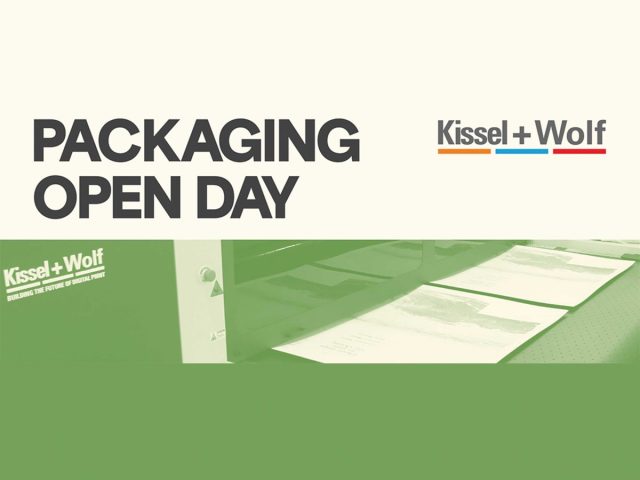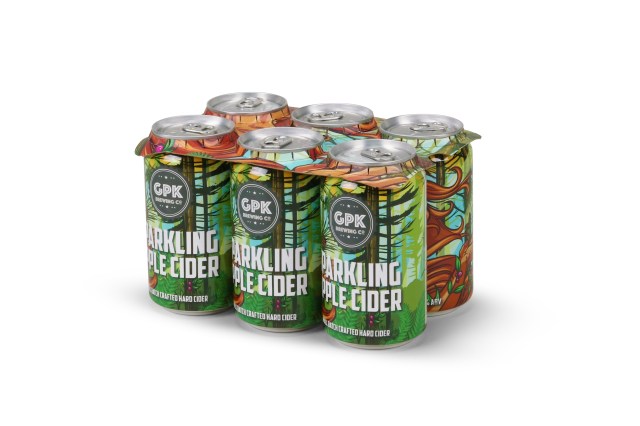
Kissel & Wolf A/NZ sales manager Bruce Caldwell was one of the speakers at the recent ProPack Packaging Forum, addressing the topic of the biggest challenges in printing and packaging.
According to Caldwell, the costs involved in manufacturing is one of the biggest challenges.
“The production and servicing costs in our industry are extremely high by comparison to many other manufacturing segments, and the margins are not improving despite technology and resource investment. We all struggle with rising costs; however, we rely very heavily on the core ingredients of print, paper, ink and freight – all of which are predicted to increase substantially in the coming year,” he said.
“There is a myriad of other challenges. The cost and access to paper and pulp is expected to skyrocket, so it’s something that we will have to watch. This is going to change and distort areas in printing and packaging quite dramatically in terms of the way we go to market, and the conversations we need to have with our print buyers.
“How that will affect volume when considering run lengths and how we best approach product or equipment positioning will be a consideration. Brands and print buyers will require astute relationship management and honest conversations on how “the partnership” may benefit from different strategies. Inventory control, variable and mosaic-based data may be a valuable sales tool as we move forward, particularly in the digital realm.”
Some other challenges facing the industry are finding and retaining good staff.
“More focus on longer-term initiative and incentive based contracts for critical and successful individuals is a start. Many companies are not projecting or discussing the potential future of these individuals within the company, rather relying on loyalty and hope,” he said.
“There are many opportunities now within the industry as IT and AI become a major asset and tool within the segment. We are not just a blue-collar industry anymore. We require a vast range of talents in areas untouched previously. With automation being so critical in ultimately driving our costs down, we need to focus on people with skills in e-commerce and web-to-print. These sectors will be the ultimate game changer or success metre for future-proofing a print business.”
According to Caldwell, businesses also need to get micro in their technology investments, with a more rational view on the TCO and return on investment.
“Whist we need to evolve consistently from a technology standpoint, we still need to focus on bringing down the breakeven points in terms of years. Back to the Goodrich days of under two years for Capital investment. Not always possible, but should be on the board!” he said.
“As for the newer technologies, AI will be crucial to the industry, and we need/have to be educated in it. An investment in AI may give companies the opportunity to potentially go directly to brands, without investing a fortune in additional infrastructure. Finding ways to generate greater margins and greater control on our margins will be driven by our ability to own a greater share of the brands directly rather than through the agencies. This is where AI and resource investment will provide opportunities.
“I’d also like to see more help from our governments. I find that we’re not getting a lot of initiatives or incentives from the governments, particularly as through the COVID years we were declared ‘a required industry’. We need to be lobbying harder to get the governments on our side.”
Caldwell said this needs to come initially from the industry bodies and associations, but also from businesses and their customers.
“There are many ways the government, local and state could better support and help future proof our industry. I would like be part of that process,” he mentioned.
In addition, Caldwell suggested that businesses keep an eye on their environmental footprints.
“Sustainability isn’t a tsunami yet, but it’s coming and it’s coming in quick. We’ve talked about it for a long time, especially with water-based presses, but the uptake of it has been quite slow which has been a bit surprising. Looking at it on a global scale, that attitude will change. We already have Nestlé and Walmart declaring only fully sustainable (not just compostable) print will be acceptable in 2025”, he said.
Caldwell also spoke about the quality of Chinese-made equipment, especially that of Hanglory Group (Shenzen Hanway), which Kissel & Wolf represents in Australia.
“I mentioned in a forum previously, when I joined Kissel & Wolf, that to succeed, we need to shift the paradigm on attitudes to digital press technologies out of China and greater Asia,” he said.
“What I saw, when I visited the Hanglory manufacturing site in Shenzen, was almost career defining. Apart from the impressive and large portfolio – from label printing to digital offset to single-pass corrugated presses, it was the attitude and research they had invested in to play in the larger markets outside China. They had to change their ways to get into the North American, European and A/NZ markets,” he said.
“So, they invested heavily on their quality control, sourced the best technology and resources, available (in or outside China) and started using channel partners like Kissel & Wolf to improve local serviceability.
“It’s genuinely exciting to see what they’re doing. Their single-pass presses in water-based technology are well ahead of the game and they’re producing really robust devices that are very well price positioned. Their goal of disrupting the US and European markets is already surpassed with more installations of single and multi-pass presses than any other manufacturer.”
The inaugural ProPack Packaging Forum would not be possible without the support from its sponsors:
Platinum Sponsor – Durst Oceania
Gold Sponsor – Cyber
Gold Sponsor – Miraclon
Bronze Sponsor – Hybrid Software
Bronze Sponsor – Kissel & Wolf
Bronze Sponsor – Koenig & Bauer


